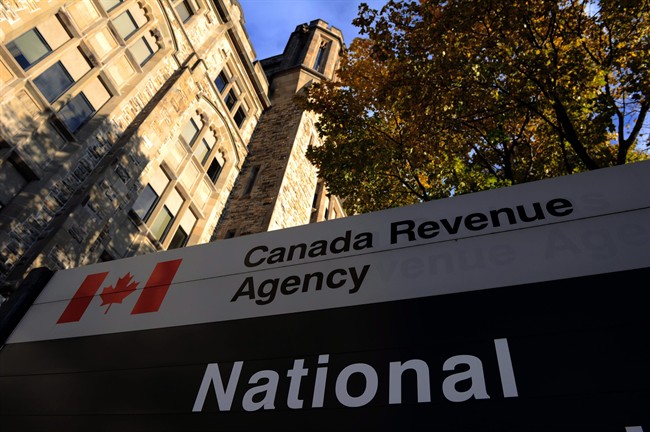OTTAWA – Even if people have done nothing wrong, there is little that can compare with the dread that an audit by the Canada Revenue Agency can cause.

Tax experts say big changes in a return or claims that seem unusual for someone with a particular job or living in a certain neighbourhood can increase the chances of an audit.
READ MORE: Why laid-off oil workers could face a bigger income tax bill at home
“There’s an umbrella of things that if they are found on your tax return they are going to put up a red flag and possibly trigger an audit,” said Dale Barrett, a tax lawyer and principal at Barrett Tax Law.
“That umbrella basically is anything that puts you out of the ordinary.”
Barrett said auditors will look for unusual behaviour that doesn’t fit the pattern.
READ MORE: Simple tax tips to help couples score big on their tax returns
That could be a sharp drop in income from one year to the next or an unusually large contribution to charity. People who bought and sold a new condominium before moving into it — regardless of their motives — may also face close scrutiny.
Auditors will also look to see how one’s income compares with others living nearby, Barrett said. If people are living in a neighbourhood of million-dollar homes, but only report $35,000 in income, they may draw more attention.

Get weekly money news
Tax lawyer David Rotfleisch at Rotfleisch & Samulovitch said if people report income that’s low for the type of job they hold, auditors may also start asking questions.
The self-employed, especially those who only report losses in their business, also face a higher risk of an audit.
Expenses have to be reasonable, Rotfleisch said.
“Having said that, if your expenses don’t make sense and aren’t reasonable, but are 100 per cent documented and correct, so be it,” he said. “But you’re going to get audited.”
Rotfleisch cited another example that can bring a second look.
READ MORE: 3 money-saving things people commonly miss when filing
For instance, if people reported rental income for years, but then stopped and reported no capital gain, auditors may wonder what happened to the property they were renting.
“Changes are what trigger a review,” he said.
A review by the Canada Revenue Agency can take different forms.
For the many Canadians who file their returns electronically, the revenue agency may just be seeking the documents and receipts they would have filed had they filed paper versions of their returns.
READ MORE: Tax Quiz — 5 things to know before filing your 2015 income tax returns
But auditors can also go deeper. Barrett said an audit may look at a particular transaction related to a tax return or can examine an entire filing as well as an evaluation of net worth.
“Everything has to be documented properly,” he said. “So, you’ve got to be in a position to support any claim that you make.”
Barrett said if filers haven’t done anything wrong but still face an audit, it is important to understand they face an adversarial relationship with the revenue agency.
“My advice to people is if you’re comfortable dealing with the auditor, if you find that they’re not pushing you around, you don’t believe you’re being tricked or asked inappropriate questions, etc., deal with it on your own, at least for the beginning,” he said.
“But if you’re nervous, if they’re proposing penalties, if they’re proposing taxes that you really don’t think you should be paying … maybe you should start looking at getting some help.”











Comments